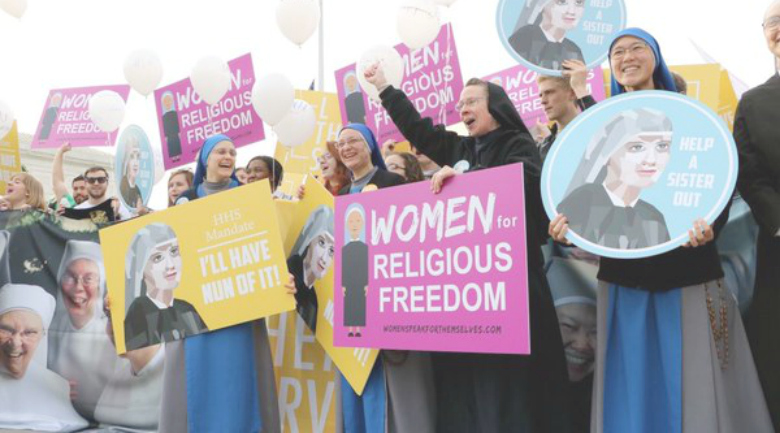-
Tips for becoming a good boxer - November 6, 2020
-
7 expert tips for making your hens night a memorable one - November 6, 2020
-
5 reasons to host your Christmas party on a cruise boat - November 6, 2020
-
What to do when you’re charged with a crime - November 6, 2020
-
Should you get one or multiple dogs? Here’s all you need to know - November 3, 2020
-
A Guide: How to Build Your Very Own Magic Mirror - February 14, 2019
-
Our Top Inspirational Baseball Stars - November 24, 2018
-
Five Tech Tools That Will Help You Turn Your Blog into a Business - November 24, 2018
-
How to Indulge on Vacation without Expanding Your Waist - November 9, 2018
-
5 Strategies for Businesses to Appeal to Today’s Increasingly Mobile-Crazed Customers - November 9, 2018
SCOTUS sends Obamacare Contraception Case back to lower courts
In an unsigned unanimous opinion, the court said it is sending the case back to lower courts to explore whether a compromise in the case is possible.
Advertisement
In the Texas case, a federal district court previously sided with the universities, blocking the mandate from going into effect.
The Obama administration had conceded there may be an alternative way of providing birth control coverage without requiring employers to sign off on it. In any event, the very real possibility is that one or more cases could end up before the Supreme Court in a later session. In 2014, in challenges from Hobby Lobby and another company, the court ruled 5-4 that closely held, for-profit corporations could decline to provide contraceptive coverage if it violated their religious beliefs.
But soon after arguments were heard, the court indicated it would seek a compromise rather than a ruling. When the case eventually returns to the Supreme Court, as it surely will, a new justice will have joined the Court to fill Scalia’s place and break the tie, at least that is the hope.
“We are disappointed that the court did not resolve once and for all whether the religious beliefs of religiously affiliated non-profit employers can block women’s seamless access to birth control”, said Gretchen Borchelt, vice president for reproductive rights and health at the National Women’s Law Center.
Lower courts must now take another look at the case, which consists of making an exception for faith-based groups so they do not have to cover the birth control costs of their female employees.
For example, religious nonprofits initially argued that the government should not be allowed to work through their insurers and should, instead, set up separate, contraceptive-only plans.
“We are disappointed that the Court chose not to issue an opinion today conclusively resolving this dispute and ensuring that women receive health insurance coverage that includes contraceptive care without further delay”, said Louise Melling, deputy legal director for the American Civil Liberties Union.
“Little Sisters of the Poor and many other religious, nonprofit organizations can not and will not participate in killing innocent children”, said Mat Staver, Founder and Chairman of Liberty Counsel. Which will not be forced to follow the government’s procedures and will not be fined if they object to the benefits of contraception. After reviewing the parties’ submissions, the Court concluded that both sides confirmed there was a feasible option to provide contraceptive coverage through the organizations’ insurance companies without any objection notice from the religious parties. “This after some organizations challenged the law on “religious” grounds”.
Advertisement
“Nothing in this opinion…is to affect the ability of the government to ensure that women covered by (church-based employers’) health plans obtain, without cost, the full range of FDA-approved contraceptives”, he added.





























